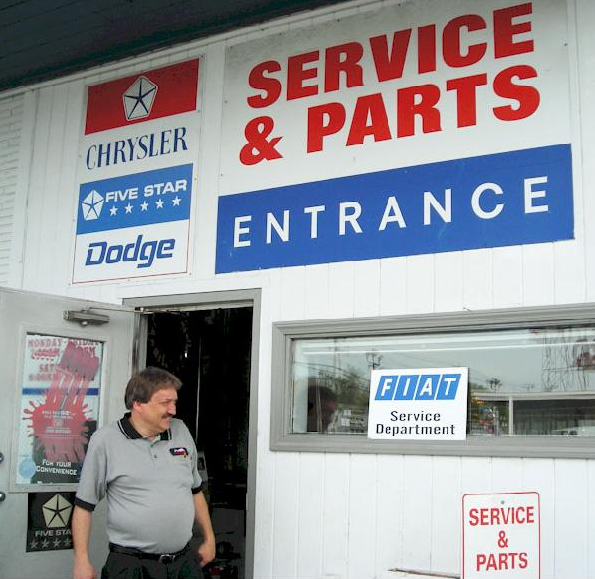Almost no one.
Today we’re recommending the tiny fraction of personal finance bloggers other than ourselves who, for lack of a more convoluted expression, get it. This isn’t one of those reciprocal-link things where we compliment other bloggers so they’ll return the favor and thus improve both parties’ Alexa rankings. We’re just trying to avail you of other sites that reach the same conclusions we do, though not necessarily from the same starting place. This isn’t an exhaustive list, and we’re qualifying it as such only because we’re bound to inadvertently leave someone off. Our apologies in advance. Here’s who you should be reading, if you’re going to read anyone:
Afford-Anything. The brainchild of Paula Pant, an Atlanta 20-something who has all the pluses of a journalist (inquisitiveness, a respect for the English language) with none of the drawbacks (self-righteousness, naked agendas.)
Her writing is crisp and forthright, and her subject matter is original. Like everyone else on this list, she practices what she preaches. She’s a freshman real estate investor who understands that you can either complain about your station in life and look for scapegoats, or you can take uncomplicated steps to build wealth. Paula isn’t hung up on frugality, but she’s also not going to waste money for the sheer enjoyment of it. She likes to travel, but she hates the idea of financing it. Our kind of girl. (Sorry fellas, she’s taken. By a guy who knows his way around a tool box, no less.)
Financial Uproar. Nelson Smith is a 29-year-old “chip guy” in Drumheller, Alberta, a little town 50 miles northeast of Calgary. His job is to ensure that the requisite number of bags of Doritos (or pretzels, or whatever) find their way into the retail store with the corresponding point-of-sale display. It’s not particle physics, but it’s a way for Nelson to make a nice living without committing undue time.
Which frees up hours to write one of the funniest sites in any subject. Nelson has opinions, and believes he’d be wasting his time if he wasn’t sharing them with you. He thinks (or rather, knows) that certain investment strategies are stupid while others aren’t. Most bloggers would rather do anything in the world than take and defend a position. Nelson does, every week, peppering his findings with a humor that’s part venomous, part juvenile (our description of which is intended as a compliment.)
6400 Personal Finance. Another 20-something, Dave is an army officer stationed at Schofield Barracks, Hawai’i. He recently returned from Afghanistan, where he handled more responsibility than do most civilians twice his age. If you didn’t know what Dave did for a living, you wouldn’t need to be too smart to figure it out from his martial and uncompromising style.
Dave means business. All it takes is one paragraph, sometimes even one sentence, for you to perceive his disdain for fools and foolishness. He does have a sense of humor, but it’s an acerbic one buried under a broad compulsion to snap people out of their bad habits.
We’d bet that Dave has never used the word “consider”, as in “consider adding an extra $20 to your monthly credit card payment.” He’d tell you to quit screwing around and pay the thing off in its entirety, but not before pointing out how irresponsible you were to have incurred said debt in the first place.
The site is named after the number of mils in a circle, a mil being a unit of angle. (A professional marksman requires greater calibration than that measured by the relatively coarse 360 degrees of a civilian circle. And thus for personal finance, too.)
Timeless Finance. Our newest discovery is the work of Joe Wood, a “purchasing specialist” in Toronto. Forget every stereotype you have about obsequious, mousy Canadians. Joe spells out what many people don’t want to hear about the banality of consumer debt and the cost of inaction. Timeless Finance is an antidote to the homogenous mass of personal finance blogs that usually consist of nothing more than an overextended writer lamenting her situation and not taking any of the obvious steps to fix it. (And let’s just say that if Joe’s posts ever become half as brazen as his emails, Timeless Finance could one day knock off Control Your Cash as the most hated personal finance blog in existence.)
Len Penzo. The only blog on the list whose founder we’ve met in person, the namesake of the site is an engineer who lives in Southern California with his beautiful wife and 2.3 kids in a house that we can only assume is surrounded by a white picket fence. The senior entrant on our list (a comment on the site’s age, not necessarily its founder’s), Len writes in an easily digestible, matter-of-fact style that’s both engaging and amusing. His blog isn’t overly technical, but rather contains common sense observations about both the micro and macro levels of personal finance. (The latter of which means, in so many words, that his political views are in lockstep with ours.)
Len’s blog is family-friendly, rarely delving into even PG territory. You can share his posts with your grandmother, something you probably wouldn’t want to do with a random entry on Financial Uproar.
Len is also so unfailingly courteous that you wonder what deep family horror he’s hiding beneath the surface. Except that we met his parents, and they were a delight too.
DQYDJ.net. It stands for “Don’t Quit Your Day Job”, and it’s the work of PK and his crew of like-minded writers. He’s a software engineer who lives in Silicon Valley, and who maintains the most technical of the sites on this list. Sample topics include everything from basic economic concepts like the income effect, and minimum wage laws (and why they’re bad) to more practical matters like the role of gold in your portfolio and the perfect credit card spending strategy. PK is a polymath who complements his pieces with killer interactive charts and other visual aids, as opposed to the stolen photos with cryptic captions that we like to use here. DQYDJ also includes occasional detours into pop culture and other non-financial topics.
Sterling Effort. The work of another software developer, this site is the antithesis of the coupon-clipping and balance-transfer nonsense that you can easily find by swinging the proverbial dead cat. Honestly, how many ways are there to tell people how to save miniscule amounts of money? 27-year old Ash Willis (and a partner) are based somewhere in the United Kingdom (sorry we can’t narrow it down any more than that.) Their driving directive is eerily similar to ours, although delineated in a refined British vernacular that we couldn’t hope to duplicate:
Children go to school. They learn how to interpret poems and solve differential equations, but at no point are they taught about money. Sterling Effort was created to stuff some financial knowledge into those of us who grew up without being taught how money really works; how to make it, save it and grow it.
The Oblivious Investor. Mike Piper is a 28-year-old CPA (although he looks like a middle-school student) who lives in St. Louis. He’s advanced way beyond the theoretical arguments (“Should I employ Dave Ramsey’s debt snowball?”) that have already been decided, instead focusing on nuts-and-bolts matters. For instance, Mike breaks down funds by category and objective, telling you what’s worth investing in and what isn’t. He takes what could be dreary subject matter and summarizes it beautifully. Mike manages to do this because he refuses to communicate in the pointless and counterproductive corporatespeak that plagues every realm of modern life and that wastes countless hours.
All these sites’ authors have the following in common:
- Originality.
- Curiosity.
- An interest in knowledge, if not for its own sake then for how it’ll benefit them financially.
- Literacy.
- An engaging writing style.
- An ability to get to the point quickly.
- An understanding that being responsible helps you build wealth, and that there are common habits that are guaranteed to keep you poor.
…all of which distinguish them from the swamp of boring and repetitive personal finance sites that litter the internet. None of the above will ever regale you with stories about how much debt they’re choking under, how difficult it is to get out, or how they’re going to start applying themselves to good habits as soon as they take that expensive vacation they’ve been dreaming about and thus deserve. Anytime any of our favorite bloggers shares a first-person story, it’s to illustrate a point, rather than to assuage their own egos.
If you can’t stomach Control Your Cash (and lots of people can’t, although they don’t typically make it this far into a post), subscribe to all of the above sites and you’ll learn more about building wealth (and thus freeing up your time) than you will just about anywhere else.







